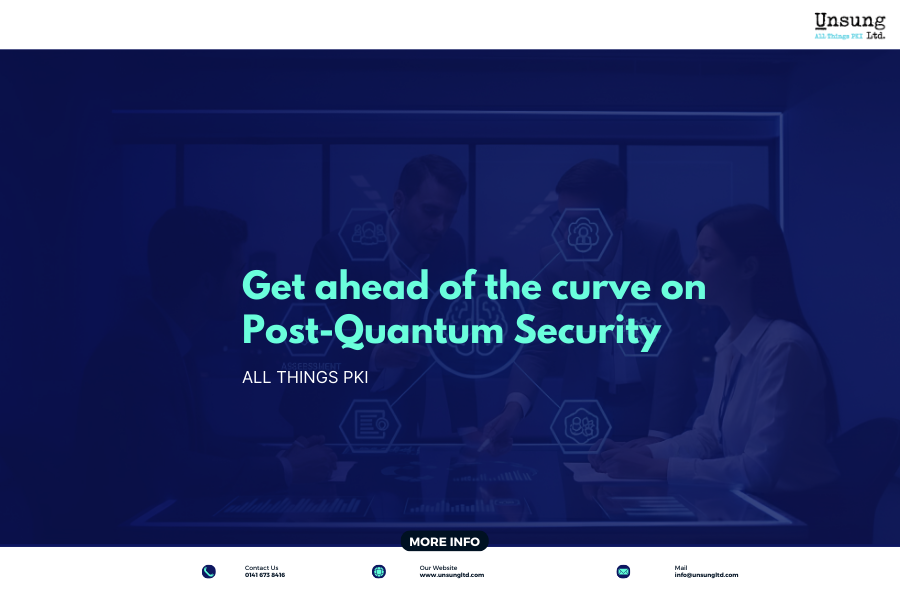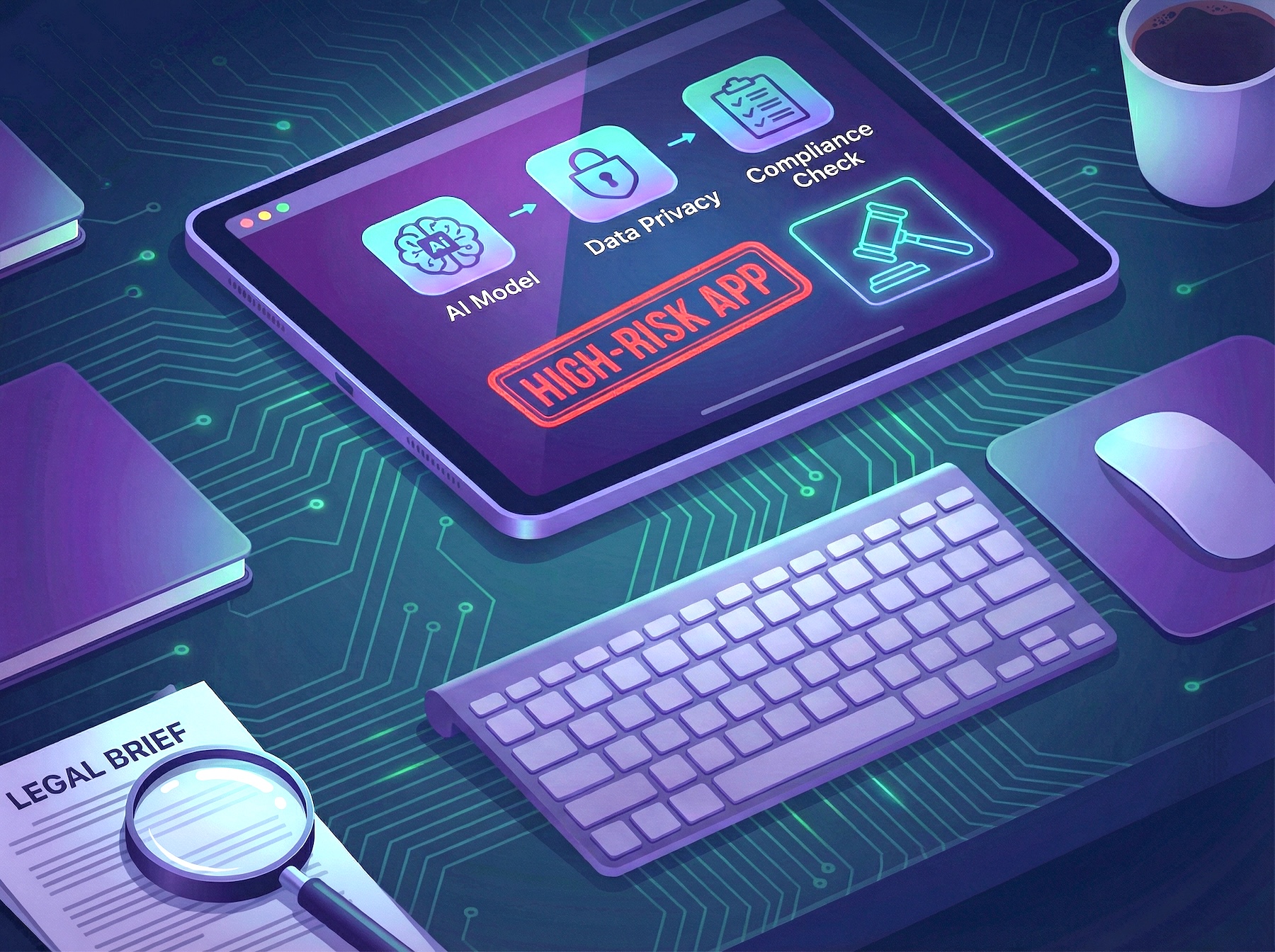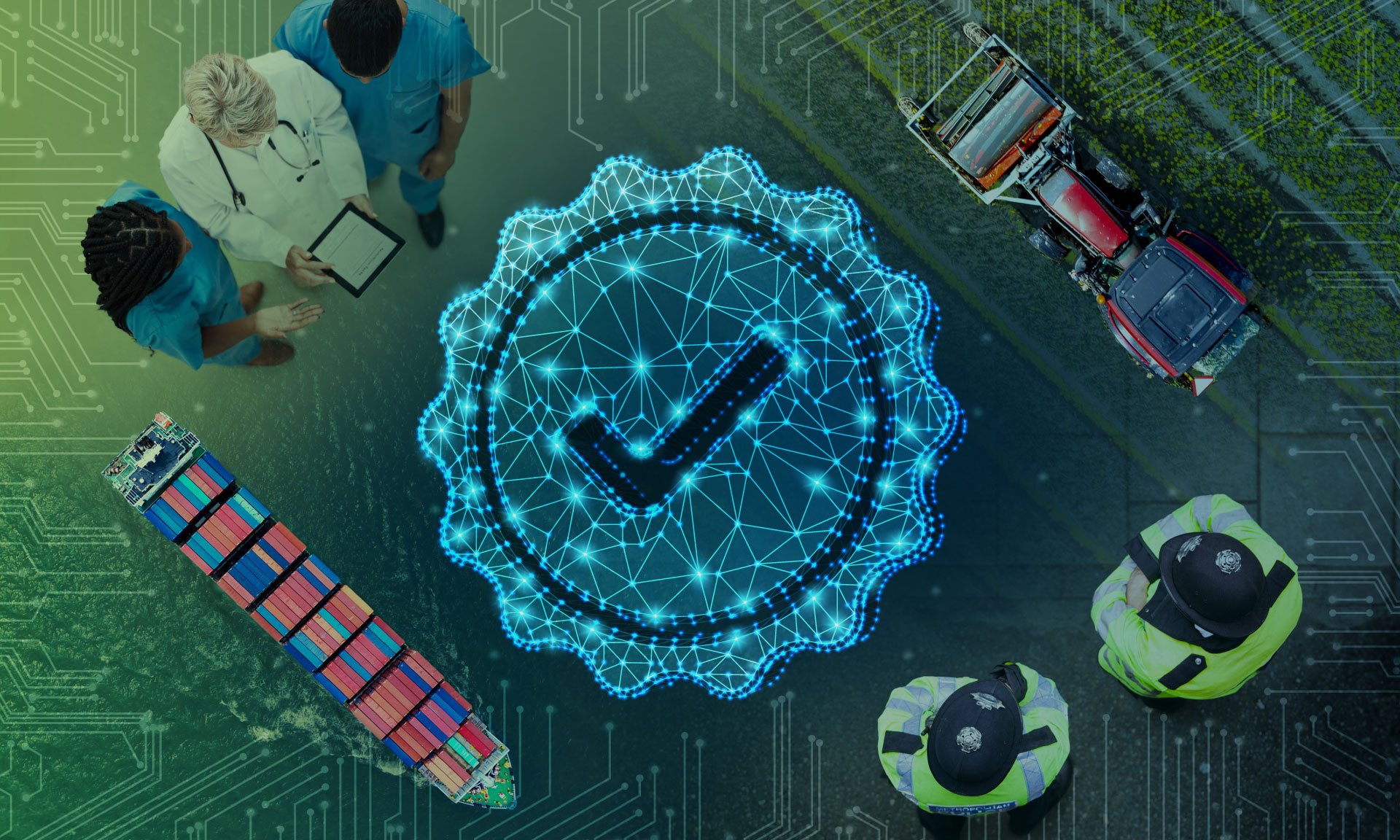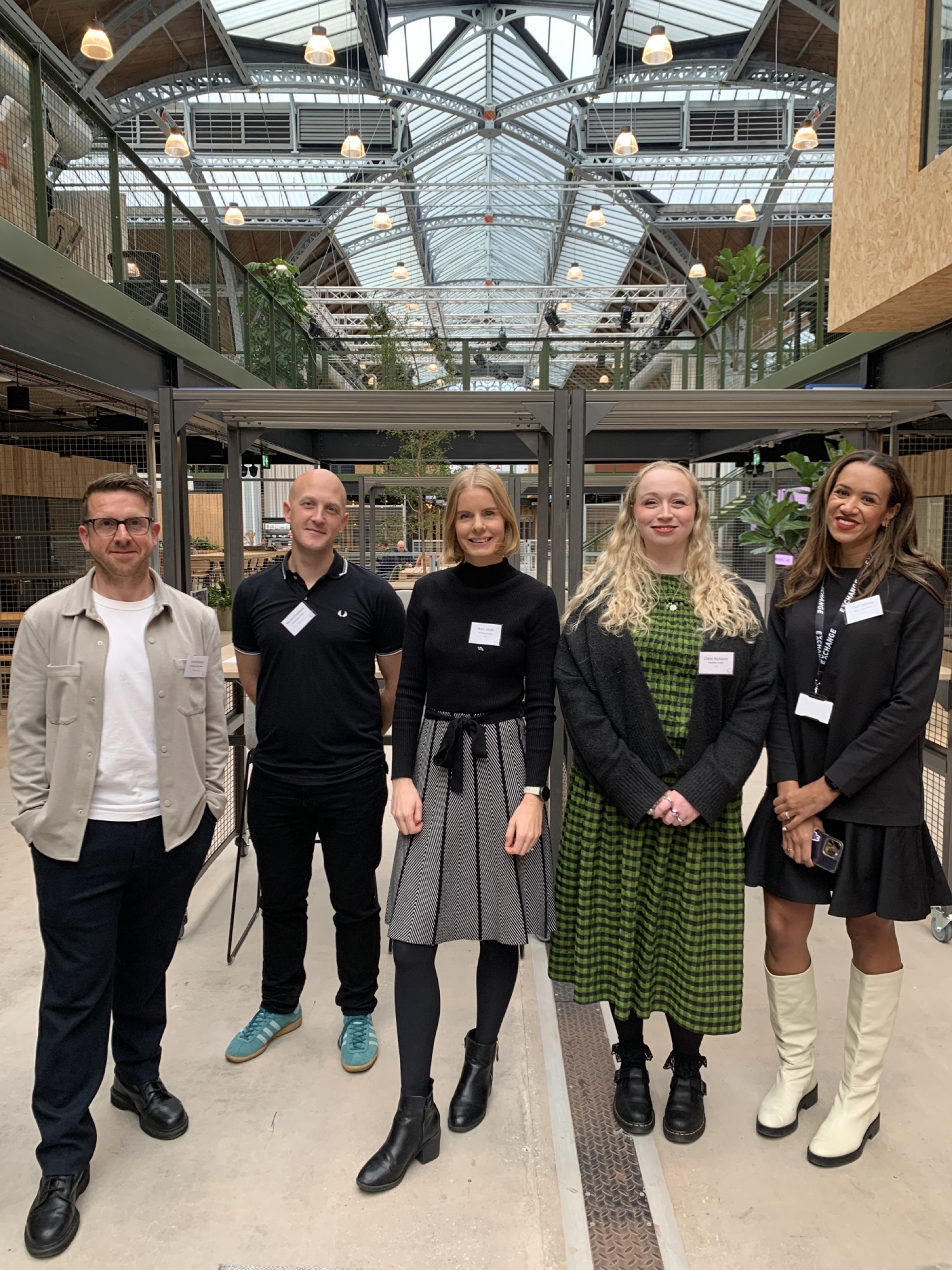It works with a Windows phone and uses location and navigation data with a network of information beacons in urban locations to describe routes.
The headset was tested on a journey from Reading to London, including shopping, bus and train travel.
The charity Guide Dogs, which helped develop the technology, said it could help improve lives.
Of the two million registered visually impaired people in the UK, 180,000 rarely or never go out, according to the charity.
"People living with sight loss face a multitude of challenges every day that can prevent them from getting where they want to be in life," explained Jenny Cook, head of strategy and research at Guide Dogs.
"Currently, visiting a new city is often daunting, even for people with enough confidence to tackle the challenge independently. For others, who rarely leave home alone, the thought of an unfamiliar journey leaves them stressed and anxious and visiting a new area is an impossible dream."
The headset is an adapted version of one already on the market. Designed for cyclists, it sits in front of the ear so as not to drown out traffic and environmental noise.
Sound is conducted through the jawbone and the headset gives a series of verbal and non-verbal descriptions.
For someone who has requested a specific route, it will make a series of clicking noises to assure them they are on the right course and it will provide specific instructions such as "turn right".
It also provides information about the route and points of interest.
Eight people with sight loss have tested the headset and five of those reported feeling safer and more confident wearing it.
Kirstie Grice, one of those to trial the technology, said: "We want to live like normal people. We don't always want to plan ahead to see if we can get community transport or a taxi or something, we want to be able to just jump on a bus and go somewhere and have that freedom."
The idea for the headset, which has been designed in partnership with the UK's Future Cities catapult and Guide Dogs, came from a Microsoft employee.
Amos Miller is visually impaired and realised that technology might be able to help him "enjoy everyday experiences outside of the home" after his daughter was born.
Some experts have questioned if the technology is capable of being rolled out widely as it is to rely on a network of beacons attached to street furniture.
A Microsoft spokesman said: "A lot of the information comes from GPS and annotated maps in the cloud which provide as much, if not more than, the beacons."
Source: BBC Technology









